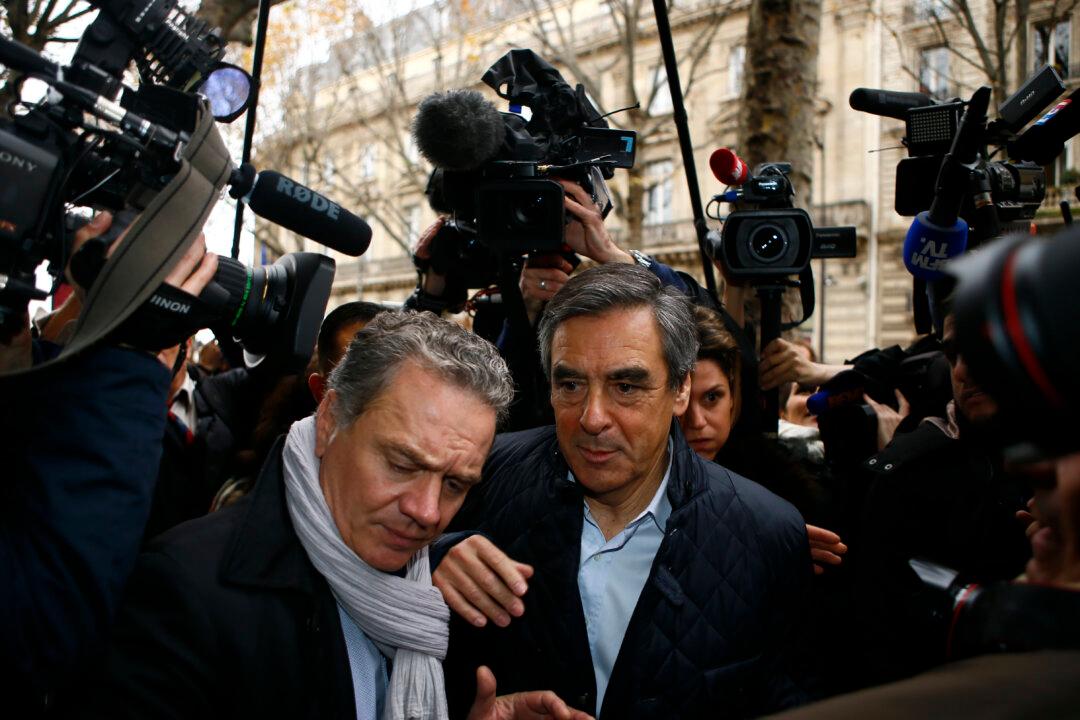PARIS—It was as if Robin suddenly trounced Batman: The longtime No. 2 of French conservative politics, the low-key Francois Fillon, unexpectedly beat his world-famous former boss Nicolas Sarkozy in a presidential primary.
It was a huge blow to Sarkozy but not to the country’s likely shift to the right, since Fillon shares Sarkozy’s hard-line stance on immigration and security.
In the first round of the conservative primary Sunday, Fillon won 44.1 percent of the votes, former Prime Minister Alain Juppe 28.6 percent and Sarkozy 20.6 percent, according to results from 95 percent of the polls published on Monday.
Fillon is now seen as the front-runner heading into the runoff against Juppe Nov. 27. The conservative nominee’s toughest competition is likely to come from far-right leader Marine Le Pen, who is hoping to be swept into power on a wave of populism in next year’s presidential election.
Fillon could prove a tough rival to Le Pen, since his traditional conservatism appeals to some of her voter base.
So how did Fillon, credited with barely 15 percent support in polls 10 days before the primary, turn the tables?
Some of it came down to style. Sarkozy’s authoritarian and abrasive personality irritated some in his own camp, and many voters saw the primary as a referendum on the former president.
In contrast, Fillon—who was prime minister under Sarkozy for five years—has cultivated an austere, classic style, banking on family and Catholic values.






